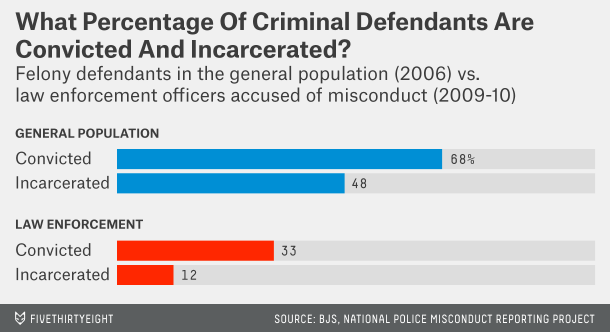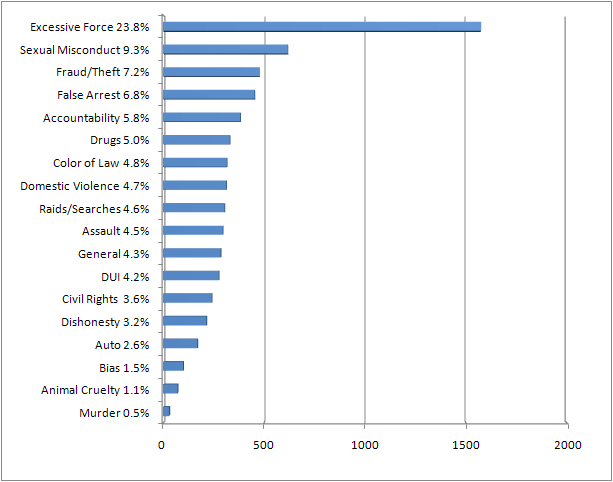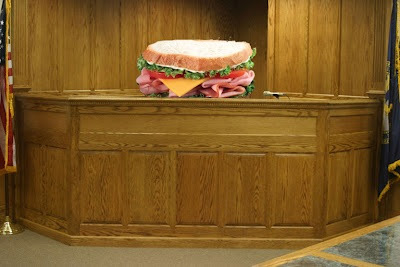
Prosecutors can get a grand jury to indict a “ham sandwich” as the famous New York Chief Judge Sol Wachtler once said.[1] If that’s the case, why has it been so hard to get an indictment over police officers blatantly accused of wrongdoing lately? Well let me explain. It’s almost like a Doctor who can’t do his job without nurses. If the Doctor gets his nurses fired, chances are, going forward; nurses will not be overly helpful in making sure the Doctor can get his job done. Similarly, prosecutors have reciprocal relationships with police officers in the jurisdictions they serve. If police feel a certain prosecutor is out to the get them there is the possibility of evidence being lost, warrants not being served correctly, and forgetting to show up and testify in court! Given the recent inability of prosecutors to sway grand juries to indict police misconduct, many are left wondering what can be done to address this increasing problem. Let us discuss prosecutors who can’t seem to indict a ham sandwich and why.
The Facts
According to the Bureau of Justice Statistics, “U.S. attorneys prosecuted 162,000 federal cases in 2010, the most recent year for which we have data. Grand juries declined to return an indictment in 11 of them.”[2] I was no math major, but if my calculator serves me correctly, only .067 percent of indictments result in a “no true bill” which is where a grand jury fails to indict. Unfortunately, no specific national data exists for grand jury investigations on police officers, however there are numbers for specific districts. For example, “[i]n the 81 grand jury investigations of police shootings in Dallas between 2008 and 2012, only 1 decided to indict.”[3]
As it stands, the proportion of general population defendants actually charged with a crime versus law enforcement officers charged with a crime is at about 2 to 1.[4] Simply put, if you’re a police officer accused of a crime you have a 50% chance of not being charged for that crime compared to civilians.

The Cato Institute’s report on National Police Misconduct shows that there were 4,861 unique reports of misconduct in 2010, including 127 fatalities associated with excessive force.[5] Further, a recent report issued by the Department of Justice on the Cleveland Police Department’s use of force shows that there is a consistent use of unreasonable force in the majority of its shootings. If police know that – statistically speaking – they are less likely to be held accountable for their action opposed to their civilian counterparts, nothing will curb this behavior outside of legislative intervention. Excessive force is the most prevalent and most consistent complaint against officers across the nation.

What Can Be Done?
There is a general consensus among legal minds that the appointment of “special prosecutors” who work independently within the office of state attorney generals would be the most ideal option. “The special prosecutor’s responsibilities should be limited to the oversight, investigation and prosecution of police or public official misconduct, keeping them independent from other policing functions.”[6] Doing so would eliminate the “special bond” and working relationship prosecutors and police agencies currently share. Let’s face it, no one wants to see their colleagues go to prison , let alone be the one who sends them there for something that occurred during the course of their employment.
The use of special prosecutors is hardly new, however the appointment of one is typically decided on a case by case basis. By establishing an independent office solely responsible for police oversight, it removes the scenario of the police policing themselves. However, as with anything related to government there is always a concern for costs. As Joshua Deahl noted, the benefits far outweigh the costs. By establishing a specific office to investigate and prosecute police misconduct, it would save state governments the added cost of paying private legal fees. He noted, “[s]pecial prosecutors picked for a single investigation have little incentive to contain costs.”[7] Just as an example, taxpayers in Cook County, IL had to pick up a $1 million legal bill “when a high-profile lawyer was appointed to handle the prosecution of former Chicago Mayor Richard Daley’s nephew for his role in a bar fight that left a man dead.”[8]
Of course any changes would need to be implemented at the state level. State lawmakers take note; because there is already proposed legislation with bi-partisan support in Missouri aimed at requiring special prosecutors to head up all investigations involving officers and fatal shootings.[9] Though there is bi-partisan support, expect push-back from existing elected prosecutors and prosecutor associations. Many will contend state constitutional separation of power requirements forbids special prosecutor offices at the executive level. However, any notion that this hasn’t been done before is hogwash. The precedence of special prosecutors stems all the way up to the U.S Justice department down to state and local governments. This can be done, or at least the conversation can be started. My suggestion is that those who share the concerns of prosecutorial bias also reach out to their legislators and demand action at the state level.

Conclusion
We can eliminate inner-office bias by simply removing the responsibility of garnering indictments from existing prosecutors who consistently work with police agencies facing charges. I completely understand the rock and hard place scenario these prosecutors are faced with. However, given the fact that so many citizens are losing their lives at the hands of police officers with little or no recourse, there must be ramifications for over-zealous officers to be aware of. The focus should be on replacing prosecutors who can’t indict a ham sandwich by appointing an independent agency responsible for greater police oversight. Please share and give feedback on ways to curb jurisdictional bias.
[1] Sol Wachtler: The judge who coined “indict a ham sandwich” was himself indicted, , http://www.slate.com/blogs/lexicon_valley/2014/11/25/sol_wachtler_the_judge_who_coined_indict_a_ham_sandwich_was_himself_indicted.html (last visited Dec 5, 2014).
[2] It’s Incredibly Rare For A Grand Jury To Do What Ferguson’s Just Did | FiveThirtyEight, , http://fivethirtyeight.com/datalab/ferguson-michael-brown-indictment-darren-wilson/ (last visited Dec 5, 2014).
[3] judicial branch – What is the percent of Police Officers that are indicted by a Grand Jury? – Politics Stack Exchange, , http://politics.stackexchange.com/questions/6471/what-is-the-percent-of-police-officers-that-are-indicted-by-a-grand-jury (last visited Dec 5, 2014).
[4] Id.
[5] Police Killings Call for New Kind of Prosecutor – Bloomberg View, , http://www.bloombergview.com/articles/2014-12-04/police-killings-call-for-new-kind-of-prosecutor (last visited Dec 5, 2014).
[6] Id.
[7] Id.
[8] Id.
[9] MO Rep, Sen want special prosecutors in all police shootings, , http://www.missourinet.com/2014/10/13/two-mo-lawmakers-want-special-prosecutors-in-all-officer-involved-shootings/ (last visited Dec 5, 2014).